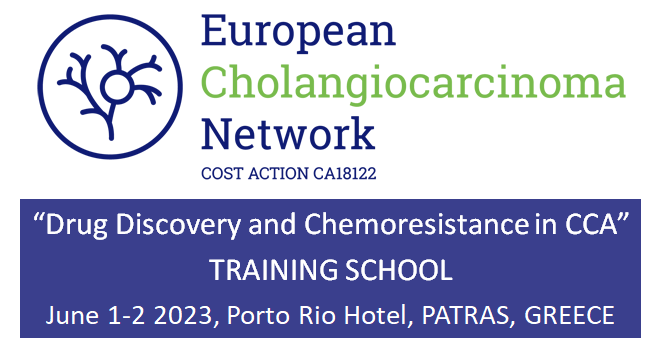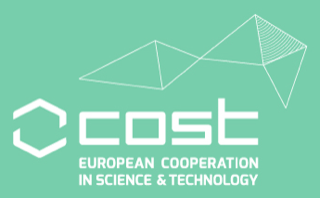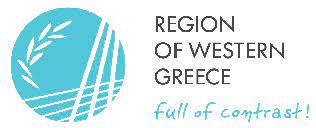The main objective of this course is to optimize knowledge regarding drug discovery and testing in cholangiocarcinoma.
Topics that will be covered during the training school include:
Day I, Session I: Cholangiocarcinoma: general aspects, heterogenicity, molecular aspects; in vitro and in vivo models; development of biologically useful novel chemical entities (NCEs); preclinical stages; clinical trials; generation of small molecule NCEs; chemical synthesis; convergent and linear routes; combinatorial libraries; atom economy; sustainability; scaling; semi-synthesis; coupling of synthetic units with natural products; conjugation with biomolecules; coupling with basic and acidic residues.
Day I, Session II: Evaluation and prediction of biological properties; high-throughput screening (HTS) of chemical libraries; rational design of drugs; in-silico evaluation of potency and ADME(Tox) properties of drug candidates; Euclidean and non-Euclidean metrics; selection rules; molecular modelling: docking, atomistic models, QSAR; drug resistance; mechanisms of multidrug resistance phenotype; analysing drug transport dynamics; Darwinian models; protection and publication of results about NCEs; writing patents: general structures, state of the art, description, examples, claims, inventors; phases (and costs) of patent filing.
Day II: Developments in NCEs against cholangiocarcinoma and case studies




